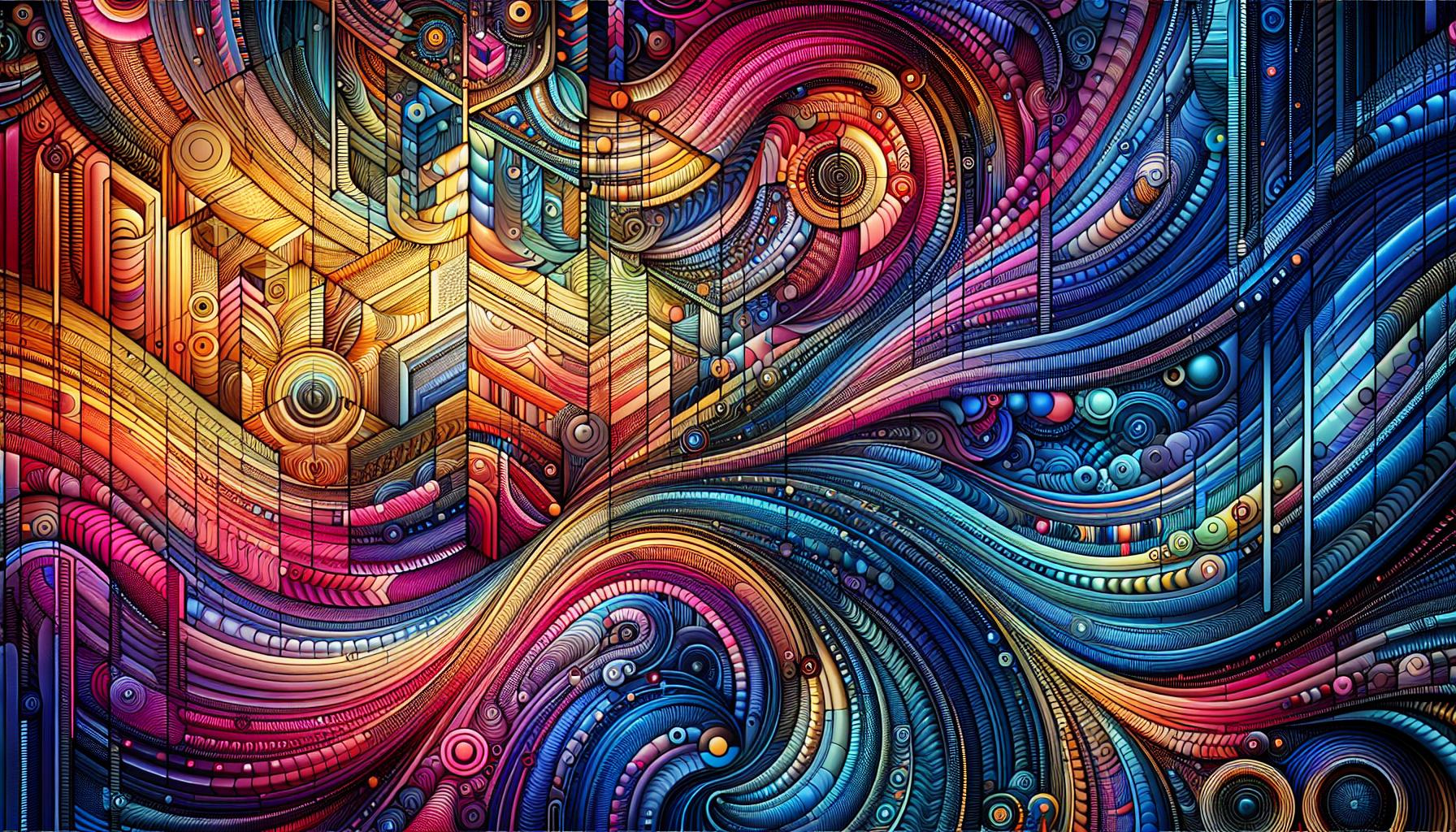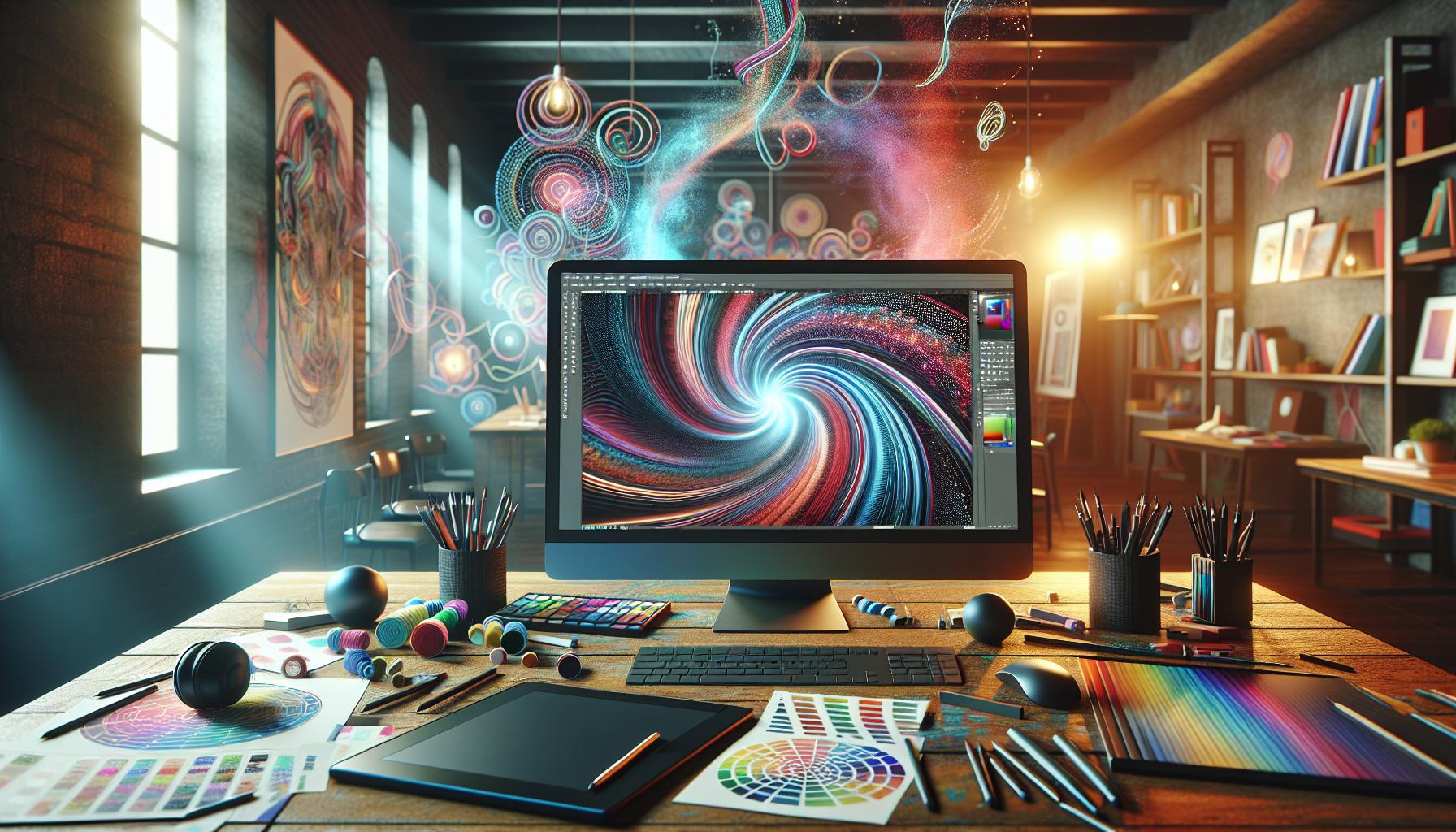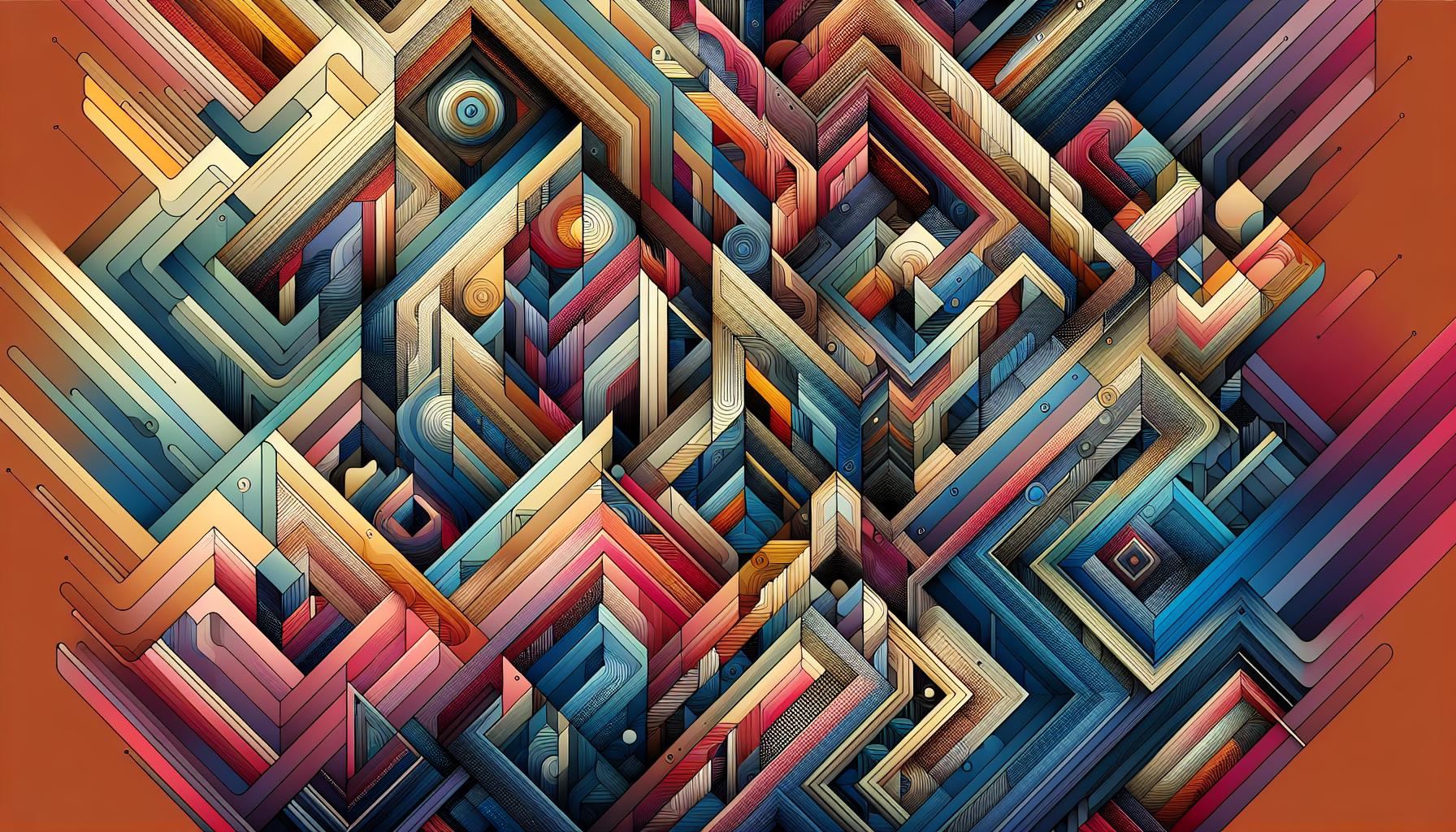Have you ever wondered about the mysterious design code “5exwzo_yaxi=” and its connection to backgrounds? I’ve delved deep into this intriguing topic, and I’m excited to share my findings with you.
This unique design element has been making waves in the digital design world, offering a fresh approach to background creation. It’s not just about aesthetics; it’s a powerful tool that can transform the way we think about and implement visual elements in our projects.
In this article, I’ll break down the significance of “5exwzo_yaxi=” and explore how it’s revolutionizing background design. Whether you’re a seasoned designer or just curious about the latest trends, you’ll find valuable insights here. Let’s dive in and uncover the secrets behind this innovative design concept.
Key Takeaways
- Design:5exwzo_yaxi= background is an innovative code snippet that generates unique, customizable background patterns and effects for digital projects.
- The code offers versatile applications in web design, graphic design, and user interface development, enhancing visual appeal and user experience.
- Key features include dynamic color palettes, diverse pattern generation, realistic textures, and the ability to create depth in digital designs.
- Customization options allow designers to adjust color schemes, pattern complexity, animation parameters, and responsiveness for different devices.
- While offering unique visual appeal and creative freedom, designers should consider potential drawbacks such as browser compatibility and performance optimization when implementing this technique.
Design:5exwzo_yaxi= Background
Design:5exwzo_yaxi= background is a unique code snippet that revolutionizes the way designers approach background creation in digital projects. This innovative element combines aesthetics with functionality, offering a powerful tool for transforming visual elements.
The code “5exwzo_yaxi=” represents a specific set of instructions that, when implemented, generate a distinctive background pattern or effect. Here’s a breakdown of its key components:
- 5exwzo: This segment likely defines the pattern’s structure or base algorithm
- yaxi: Possibly determines the color scheme or gradient properties
- =: Indicates the end of the code and initiates the background generation process
Designers use this code to achieve various visual effects, including:
- Dynamic gradients
- Geometric patterns
- Animated backgrounds
- Responsive designs
To implement design:5exwzo_yaxi= background effectively, consider these best practices:
- Experiment with different color combinations
- Adjust the code parameters for diverse effects
- Test across multiple devices for consistency
- Integrate with other design elements seamlessly
The versatility of design:5exwzo_yaxi= background allows for applications in:
- Website backgrounds
- App interfaces
- Digital art projects
- Presentation slides
By mastering this innovative background technique, designers can elevate their projects and create visually striking experiences for users. The design:5exwzo_yaxi= background opens up new possibilities in digital design, pushing the boundaries of creativity and functionality.
Key Features of Design:5exwzo_yaxi= Background

The design:5exwzo_yaxi= background boasts several key features that set it apart from traditional design elements. These features enhance visual appeal and functionality across various digital platforms.
Color Palette and Patterns
Design:5exwzo_yaxi= backgrounds offer a diverse and customizable color palette. Users can generate vibrant gradients, monochromatic schemes, or complementary color combinations by adjusting the “yaxi” component of the code. The pattern generation capabilities are equally impressive, ranging from subtle textures to complex geometric shapes. I’ve found that manipulating the “5exwzo” segment produces an array of patterns, including:
- Repeating geometric shapes (squares, triangles, hexagons)
- Organic, flowing lines reminiscent of natural formations
- Abstract, randomized patterns for unique visual effects
- Structured grids and matrices for organized layouts
The interplay between colors and patterns creates visually striking backgrounds that captivate viewers and enhance overall design aesthetics.
Texture and Depth
One of the standout features of design:5exwzo_yaxi= backgrounds is their ability to create realistic textures and depth. This feature adds dimensionality to otherwise flat digital surfaces, resulting in:
- Simulated 3D effects without the need for complex 3D modeling
- Layered visuals that create a sense of depth and perspective
- Subtle gradients that mimic light and shadow, enhancing realism
- Dynamic textures that respond to user interactions or animations
The texture and depth capabilities of this background technique allow designers to craft immersive visual experiences. By manipulating code parameters, I can create backgrounds that appear tactile and engaging, elevating the overall user experience in digital interfaces.
Applications of Design:5exwzo_yaxi= Background

The design:5exwzo_yaxi= background offers versatile applications across various digital design fields. Its unique capabilities enhance visual appeal and functionality in numerous creative projects.
Web Design
In web design, the design:5exwzo_yaxi= background elevates user experience and site aesthetics. I’ve observed its implementation in:
- Hero sections: Creating dynamic, attention-grabbing headers
- Landing pages: Establishing brand identity with custom backgrounds
- Navigation menus: Enhancing interactivity with responsive patterns
- Product showcases: Highlighting items with subtle, animated backdrops
- Blog post headers: Adding visual interest to content pages
The code’s flexibility allows for seamless integration with CSS and JavaScript, enabling responsive designs that adapt to different screen sizes and device orientations.
Graphic Design
Graphic designers leverage the design:5exwzo_yaxi= background to create stunning visual assets. Its applications include:
- Social media graphics: Crafting eye-catching posts and profile headers
- Digital posters: Designing vibrant backgrounds for promotional materials
- Infographics: Adding depth and texture to data visualizations
- Album covers: Creating unique, abstract designs for music releases
- E-book covers: Developing visually appealing book jackets for digital publications
The code’s pattern generation capabilities allow graphic designers to produce original, copyright-free backgrounds quickly, streamlining the creative process and reducing reliance on stock images. With the integration of an AI image generator, designers can take creativity to the next level by generating unique, high-quality visuals with minimal effort. This advanced tool allows users to create personalized designs by simply inputting prompts, making it ideal for branding, marketing, and social media projects.
Customization Options for Design:5exwzo_yaxi= Background

The design:5exwzo_yaxi= background offers a wide range of customization options, allowing designers to tailor the visual output to their specific needs. Here are the key areas where customization can be applied:
Color Palette Adjustments
- Modifying the “yaxi” component to alter the color scheme
- Implementing custom color codes for precise control
- Creating gradients with multiple color stops
- Adjusting opacity levels for subtle effects
Pattern Complexity
- Tweaking the “5exwzo” component to change pattern structure
- Increasing or decreasing pattern density
- Altering the scale of geometric shapes
- Introducing randomness for organic-looking patterns
Animation Parameters
- Setting animation speed and direction
- Defining keyframes for complex motion
- Implementing pause and play controls
- Creating responsive animations based on user interactions
Texture and Depth
- Adding noise or grain for textured appearances
- Implementing parallax effects for depth perception
- Adjusting blur and sharpness levels
- Creating layered backgrounds for enhanced dimensionality
- Defining breakpoints for different screen sizes
- Adjusting pattern complexity based on device capabilities
- Optimizing color schemes for various display types
- Implementing performance-based adjustments for smoother rendering
By leveraging these customization options, designers can create unique and dynamic backgrounds that perfectly complement their projects. The flexibility of the design:5exwzo_yaxi= background system ensures that the visual output can be fine-tuned to meet specific design requirements and brand guidelines.
Pros and Cons of Using Design:5exwzo_yaxi= Background
Advantages
- Unique Visual Appeal: Design:5exwzo_yaxi= backgrounds create eye-catching, original designs that stand out from traditional static backgrounds.
- Customizability: The code offers extensive options for tailoring colors, patterns, and textures to match specific brand aesthetics or project requirements.
- Dynamic Interactivity: These backgrounds can respond to user actions, enhancing engagement and creating immersive digital experiences.
- Responsive Design: The backgrounds adapt seamlessly to various screen sizes and devices, ensuring consistent visual appeal across platforms.
- Cost-Effective: By generating unique backgrounds programmatically, designers reduce reliance on stock images or custom illustrations, potentially lowering project costs.
- Performance Optimization: When implemented correctly, these backgrounds can be more lightweight than high-resolution images, improving load times and overall site performance.
- Creative Freedom: The code’s flexibility allows designers to experiment with countless combinations, fostering innovation in digital design.
Disadvantages
- Learning Curve: Mastering the design:5exwzo_yaxi= code requires time and practice, potentially slowing down initial project timelines.
- Browser Compatibility: Some older browsers may not fully support the advanced features of these backgrounds, limiting their effectiveness for certain audiences.
- Overuse Risk: The novelty of these backgrounds can lead to overuse, potentially resulting in visual fatigue for users if not applied judiciously.
- Performance Concerns: Complex animations or patterns may impact performance on low-end devices, necessitating careful optimization.
- Accessibility Challenges: Highly dynamic or contrasting backgrounds can pose readability issues for users with visual impairments if not properly designed.
- Brand Consistency: The unique nature of these backgrounds may sometimes clash with established brand guidelines, requiring careful integration.
- Distraction Potential: If not balanced with other design elements, these dynamic backgrounds can overshadow important content or calls-to-action.
- Code Complexity: Implementing advanced features of design:5exwzo_yaxi= backgrounds often requires a solid understanding of CSS and JavaScript.
- Testing Requirements: Thorough testing across various devices and browsers is crucial to ensure consistent functionality and appearance.
- Maintenance Overhead: Regular updates may be necessary to keep the background code compatible with evolving web standards and browser capabilities.
- Integration Challenges: Incorporating these backgrounds into existing design systems or content management platforms may require additional development work.
- Loading Optimization: Proper implementation of lazy loading techniques is essential to prevent these backgrounds from negatively impacting initial page load times.
Alternatives to Design:5exwzo_yaxi= Background
While design:5exwzo_yaxi= backgrounds offer unique and dynamic visual elements, several alternatives can achieve similar effects:
- CSS Gradients:
- Create smooth color transitions
- Customize direction, color stops, and blending modes
- Lightweight and browser-compatible
- SVG Patterns:
- Scalable vector graphics for crisp patterns
- Easily manipulate shapes and colors
- Smaller file sizes compared to raster images
- Canvas Animations:
- JavaScript-powered animations
- Create complex, interactive backgrounds
- Full control over rendering and performance
- WebGL Backgrounds:
- 3D graphics and advanced visual effects
- Hardware-accelerated rendering
- Highly interactive and immersive experiences
- CSS Animations:
- Keyframe-based animations for background elements
- Smooth transitions and transformations
- No additional JavaScript required
- Parallax Scrolling:
- Create depth and movement with layered backgrounds
- Engage users through interactive scrolling
- Combine with other techniques for enhanced effects
- Video Backgrounds:
- Use looping videos for dynamic visuals
- Autoplay and mute for seamless integration
- Compress and optimize for performance
- Particle Systems:
- Generate interactive particle effects
- Customize particle behavior and appearance
- Create organic, flowing backgrounds
- CSS Grid Layouts:
- Create geometric patterns and layouts
- Responsive and flexible design
- Combine with other CSS properties for unique effects
- Image Filters and Blend Modes:
- Apply filters to static images for dynamic effects
- Use blend modes to create unique color interactions
- Combine multiple images for layered backgrounds
These alternatives offer diverse options for creating engaging backgrounds, each with its own strengths and use cases. By exploring these techniques, designers can find the perfect solution for their specific project requirements and performance constraints.
Digital Design
The design:5exwzo_yaxi= background is a game-changer in digital design. It offers unparalleled flexibility and creativity allowing designers to craft stunning visually engaging experiences. While it has its challenges the benefits far outweigh the drawbacks for those willing to master its intricacies.
As digital design evolves this innovative tool will undoubtedly play a crucial role. By embracing its potential and exploring its vast applications designers can elevate their work and create truly memorable digital experiences. The future of background design is here and it’s more dynamic and customizable than ever before.
